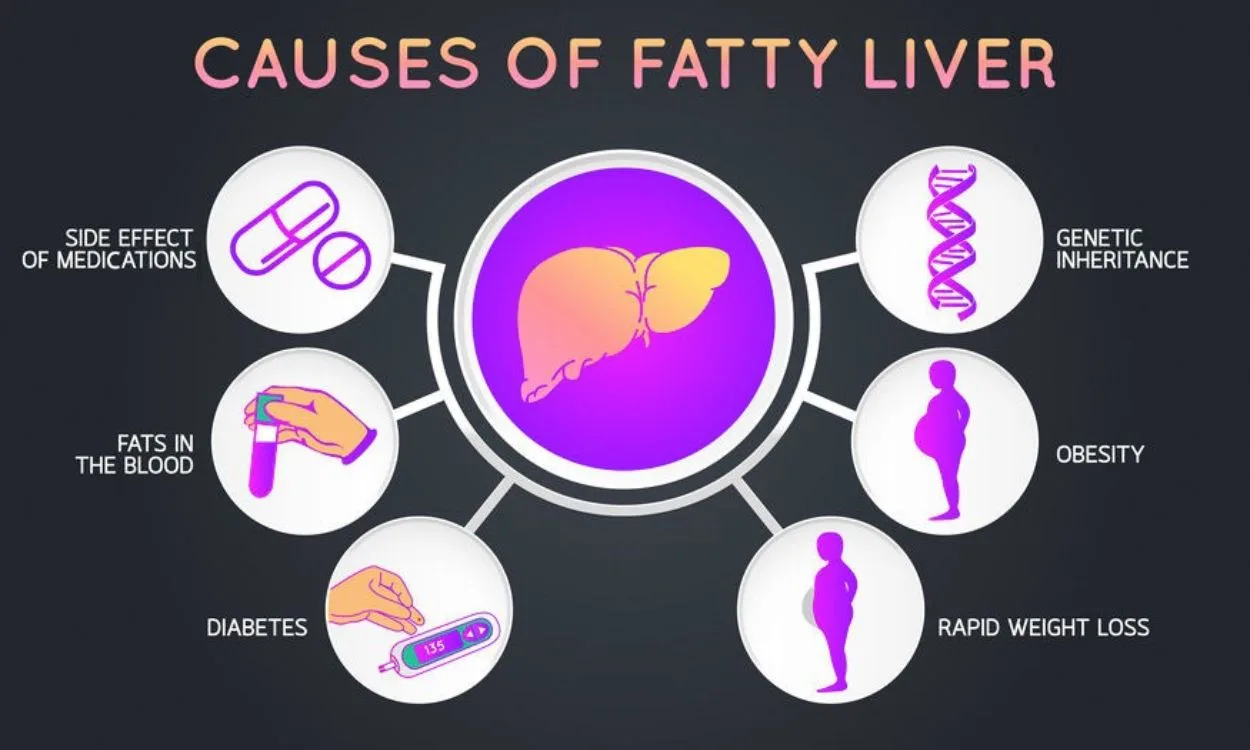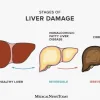Can diabetes contribute to fatty liver?
Introduction
Diabetes is a chronic condition that affects the body’s ability to regulate blood sugar levels. It is well-known that diabetes can lead to various complications, such as heart disease, kidney problems, and nerve damage. However, one lesser-known complication of diabetes is fatty liver disease. In this article, we will explore the relationship between diabetes and fatty liver, and understand how diabetes can contribute to the development of this condition.
Understanding fatty liver disease
Fatty liver disease, also known as hepatic steatosis, is a condition characterized by the accumulation of fat in the liver cells. This can impair liver function and lead to inflammation and scarring of the liver. There are two main types of fatty liver disease:
- Non-alcoholic fatty liver disease (NAFLD): This is the most common type of fatty liver disease and is not related to excessive alcohol consumption. NAFLD is closely associated with metabolic conditions such as obesity, insulin resistance, and diabetes.
- Alcoholic fatty liver disease: This type of fatty liver disease is caused by excessive alcohol consumption.
The link between diabetes and fatty liver
- Insulin resistance: Insulin is a hormone that helps regulate blood sugar levels. In people with type 2 diabetes, the body becomes resistant to the effects of insulin, leading to elevated blood sugar levels. Insulin resistance is also associated with an increased production of insulin by the pancreas. Both elevated insulin levels and insulin resistance can contribute to the development of fatty liver disease.
- Increased fat storage: Insulin resistance promotes the storage of excess fat in the liver. The liver plays a crucial role in metabolizing and storing fats. When insulin resistance is present, the liver is unable to efficiently break down and remove fat from the bloodstream, leading to its accumulation in liver cells.
- Increased inflammation: Diabetes is characterized by chronic inflammation throughout the body. This inflammation can also affect the liver, leading to liver cell damage and the development of fatty liver disease.
- Abnormal lipid metabolism: People with type 2 diabetes often have abnormalities in lipid metabolism, including high levels of triglycerides and low levels of HDL cholesterol. These abnormalities can further contribute to the development of fatty liver disease.
Managing fatty liver disease in diabetes
If you have diabetes and are diagnosed with fatty liver disease, it is important to take steps to manage both conditions effectively. Here are some strategies that can help:
- Blood sugar control: Maintaining good control over blood sugar levels is essential. This can be achieved through a combination of medication, a healthy diet, regular physical activity, and monitoring blood sugar levels regularly.
- Weight management: Losing weight, if necessary, can help reduce insulin resistance and liver fat accumulation. A balanced diet and regular exercise can contribute to weight loss and improved liver health.
- Healthy diet: A healthy diet is crucial for managing both diabetes and fatty liver disease. Focus on consuming whole foods, such as fruits, vegetables, lean proteins, and whole grains. Limit your intake of processed foods, sugary drinks, and high-fat foods.
- Regular exercise: Engaging in regular physical activity can help improve insulin sensitivity and promote weight loss. Aim for at least 150 minutes of moderate-intensity exercise or 75 minutes of vigorous-intensity exercise per week.
Introducing Fitpaa: Your partner in health and fitness
Managing diabetes and fatty liver disease can be challenging, but with the right support, it is possible to achieve your health and fitness goals. Fitpaa is an AI-driven metabolism monitoring and management technology that can help you make sustainable lifestyle changes to improve your overall well-being.
With Fitpaa, you can:
- Take a comprehensive metabolism assessment to identify the root cause of your health condition.
- Get personalized guidance from a team of fitness coaches, nutritionists, and doctors.
- Follow a personalized Fitpaa Capsule, which includes medical therapy, medical exercise therapy, medical nutrition therapy, and cognitive behavior therapy.
- Benefit from real-time guidance and support through the Fitpaa mobile app, which provides workout plans, diet tracking, progress tracking, and more.
- Have your progress regularly reviewed by a team of experts to make necessary adjustments and ensure you achieve your goals.
Fitpaa offers a 7-day risk-free trial, allowing you to experience the benefits of the app before committing. Your well-being is their mission, and they promise to help you achieve your health and fitness goals with guaranteed results.
To experience the transformative power of Fitpaa and take charge of your health, download the Fitpaa app today and embark on a journey towards a healthier and happier life.









